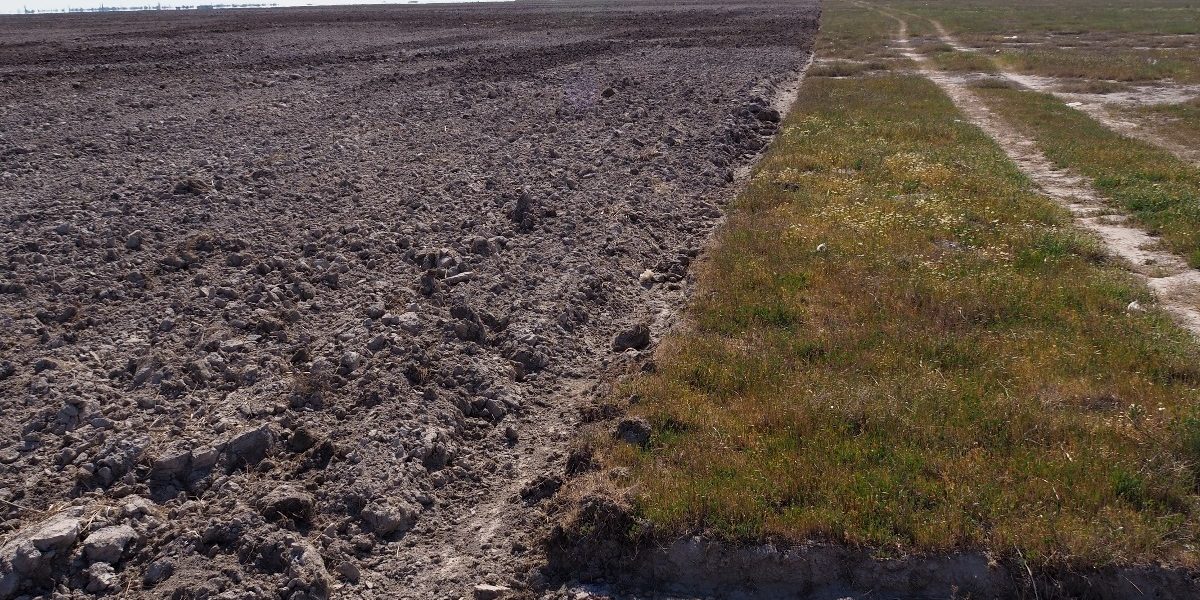Ukraine may face an international scandal. On the one hand, the state is proclaiming the European course, and on the other hand, the parliamentarians are passing laws that endanger even the natural sites of UNESCO’s world heritage. Thus, the recently adopted Law № 2211-IX allows the use of nature reserve fund lands for the construction of seaports and commercial agricultural production. At the same time, criminal and administrative liability is provided for such actions.
The law № 2211-IX (on the peculiarities of the regulation of land relations in martial law) prescribes in the Transitional Provisions of the Land Code the right to lease state and communal land, but does not mention the category of land. Thus, it is allowed to lease land of any category for a wide range of activities: construction work for the production facilities of evacuated enterprises, ports, electricity networks, gas distribution, water, heat, sewage, gas, housing and infrastructure for refugees and more.
For all these points (enterprises, housing, infrastructure) the transfer of land for lease of state and communal property is not allowed, “if the land is classified as lands of nature reserves and other environmental purposes.” It seems that everything is fine. However, most of the lands in the nature reserve fund are still classified as agricultural land (the category of land has not changed during their creation), so they fall under economic development.
In addition, there are items that allow the lease of state and municipal property for:
- d) commodity agricultural production;
- e) location of seaports.
The norm on the prohibition of renting land plots of nature reserves fund has not been extended to these points. This implies permission not only to use the nature reserves fund lands for commercial agricultural production and seaports, but also to violate the purpose of the lands of the nature reserve fund, as the ban on the use of these lands is prescribed only for the first points (enterprises, housing, infrastructure).
The legal invalidity of this norm is that it covers absolutely all lands of the nature reserve fund: from nature reserves to biosphere reserves protected under the auspices of UNESCO. Thus, these points contradict not only the current legislation, but also international obligations and agreements that take precedence over national legislation. The authors of this Law actually set Ukraine up in its pursuit of European integration. All of them are members of the Verkhovna Rada Committee on Agrarian and Land Policy: Nagaevsky, Saliychuk, Chernyavsky, Bunin, Grishchenko, Yurchyshyn, Nikitina, Halimon, Guzenko. It is very strange that they “confuse” land policy with agrarian one and seem to think that it is the same thing.
Haste, ignorance or conscious intention? In its conclusion, the Main Legal Department of the Verkhovna Rada warned the authors that in this form the bill would: “will have a negative impact on the protection of the environment, the preservation of natural areas, in particular those protected at the international level and which Ukraine protects within the framework of its obligations under the Association Agreement between Ukraine, on the one hand, and the European Union, the European Atomic Energy Community. and their Member States, on the other hand, historical and cultural heritage, agricultural development, etc.”
The only thing that is gratifying is that Law № 2211-IX has not made any changes to the Law of Ukraine “On the Nature Reserve Fund of Ukraine”, which would allow to violate the regime of the territories of the NRF. Similarly, the articles of the Criminal and Administrative Codes on punishment for violating the regime of NRF objects were not suspended. Neither the Criminal Code nor the Administrative Codes operate on the concept of category or purpose of land in relation to the NRF. They operate exclusively on the concepts of “territories” that are part of the NRF objects (such a term is not disclosed in any legislative act).
Thus, the authors of the Law not only confuse the legal framework, but also invite local authorities and agricultural producers to commit a crime punishment by which no one has abolished.







